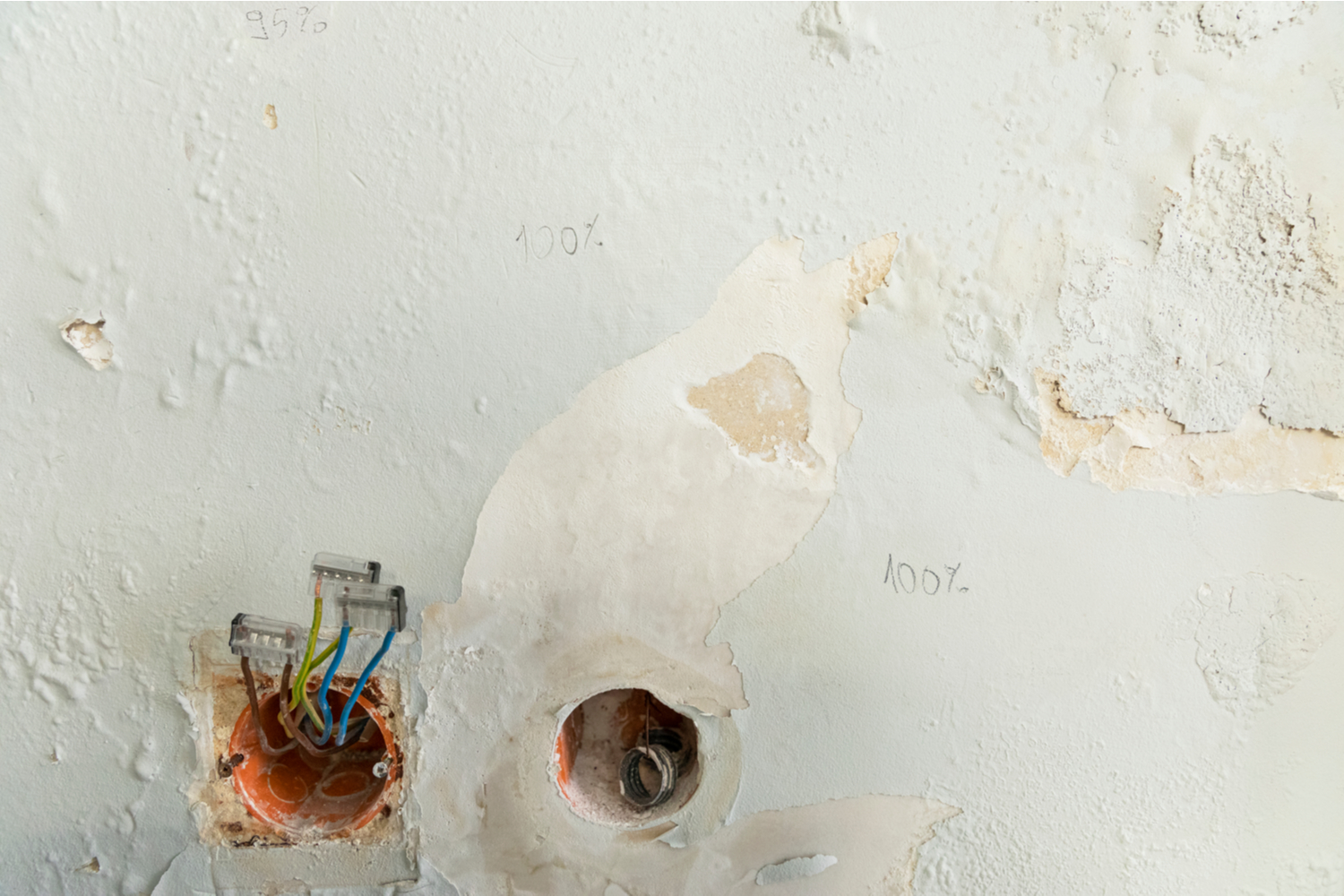Mold and Poor Air Quality May be Causing those Annoying Basement Odors
Basements and below ground level rooms are notorious for the presence of stale, foul-smelling air. This may be why only one third of newly constructed homes in the U.S. have a basement or room partially below ground level. In fact, the air in these below-grade spaces may be the worse smelling air in your home, worse even than a kitchen after frying fresh fish. This musty, stale air is often the result of air pollutants that can cause adverse health effects. And even worse, that stale air can be spread to other areas of your home.
These areas of a home are seeing more and more conversions into family rooms and extra bedrooms. That is because it is much more cost effective to remodel these areas than it is to add on a new wing to a home. Because we are spending more time in these lower levels, it is important to focus efforts into improving their air quality.
Common Problems With Below-Grade Spaces
A finished basement or below-grade room can be a seamless extension of your home. Because they are at a completely or partially below-grade level, they have unique issues that require special consideration to keep them problem free. Here are a few of the most common problems that should be addressed:
Humidity – Your lower level may be watertight, having no issues with water intrusions of any kind, yet still have a humidity problem. High humidity can result in condensation on both organic and metal surfaces. This extra moisture is a source of moisture for mold and creepy, crawly insects and bugs. It can also cause rot in your furniture and your home’s structural components, and rust on galvanized metal. High levels of humidity can cause a condition called efflorescence, a white powdery substance that can show up on concrete and masonry. And although efflorescence is not a health hazard, it is unsightly.
Funky Odors – Many odors come hand-in-hand with high humidity. Once mold or mildew begin to grow, you will notice musty, earthy smells. Dust mites and rot will also produce their own uniquely offensive odors. The air in most below-grade levels is stagnant, slow-moving air. Basements and such usually have poorer ventilation than the rest of the home. This leads to an accumulation of airborne pollutants like irritants and toxins. Current home design puts more emphasis on keeping warm air in by sealing everything tight, helping to restrict below ground-level airflow.
Cracks and Leaks – As water in the ground freezes and thaws, it will cause expansion and contraction in concrete walls and floors. This can lead to small (or large) cracks and fissures that allow water to enter the below-grade spaces of a home. These cracks never get better on their own, and many times professional assistance is required to repair them. Another thing that groundwater can result in is the buildup of hydrostatic pressure. When enough hydrostatic pressure builds up, it will force water through the walls and floor. Concrete is a porous substance that will, with enough pressure, allow moisture to pass through it.
Flooding Due to Sump Pump Failure – Many below-grade rooms require a sump pump to remove water as it collects around a home’s foundation. If the sump pump fails for any reason the water will flood the area. That’s why many plumbing professionals recommend installing a backup pump or a battery backup system. A good way to check on your sump pump’s operation, is to occasionally dump a 5-gallon bucket of water into it. That’s enough water to switch the pump on and you can then see that it is still functioning properly.
Mold – One of the worse problems, actually the number 1 problem, you can have in your lower level is mold. Mold smells bad, looks bad, and cause any number of health problems for people living in the home. Mold has been blamed for increased asthma attacks, allergic reactions, skin rashes, and other serious health-related problems. Left untreated, mold will cause damage to your walls, furniture, and anything organic (leather items, clothing like silks and cottons, etc.) that you have stored in the below-grade level of your home.
What NOT to Do About Poor Basement Air Quality
Many people use plug-in or spray air deodorizers when confronted with bad smelling air. This is only a cover-up and doesn’t address the true reason for foul odors. In fact, using these “fresheners” may add to the problem instead of remedy it. Air fresheners are composed of chemicals (VOCs), which are often toxic in nature. These products use a stronger smell to cover up the bad smell. They don’t eliminate the bad smell, they simply add more pollution to the already polluted air.
What Can You Do About Basement IAQ?
1. Increase ventilation. Open doors or windows if possible. Use fans to stir the air. Most reports on IAQ state that indoor air is often 2-5 times more polluted than outside air.
2. Maintain Healthy Humidity Levels – Reducing humidity will help keep the air fresh. It will limit the moisture that attracts insects and allows mold to take root and grow. The EPA recommends maintaining indoor humidity levels between 30%-50%. Using a dehumidifier that you can purchase at almost any home improvement or hardware store will help you maintain that recommended humidity.
3. If Mold Is an Issue – Consider hiring a mold removal specialist like Water Mold Fire Restoration. Our mold removal specialists have been through extensive classroom and hands-on training, as well as years of experience, for the safe removal of residential and commercial mold.
To safely remove mold, certain procedures need to be followed. First, the area affected by mold needs to be contained, isolated from unaffected parts of the home. Any affected porous materials (drywall, carpet and carpet cushion, paper, cardboard, etc.)need to be bagged and removed. Structural lumber, like 2x4s and plywood need to be cleaned and/or treated to keep the mold from coming back. It is extremely easy to do this type of work wrong, and end up causing a bigger problem than you had in the beginning.
We can have a certified mold specialist visit your home and conduct a free mold inspection, with no obligation. Contact us 24/7 at 800-905-0277 or at help@watermoldfire.net.








